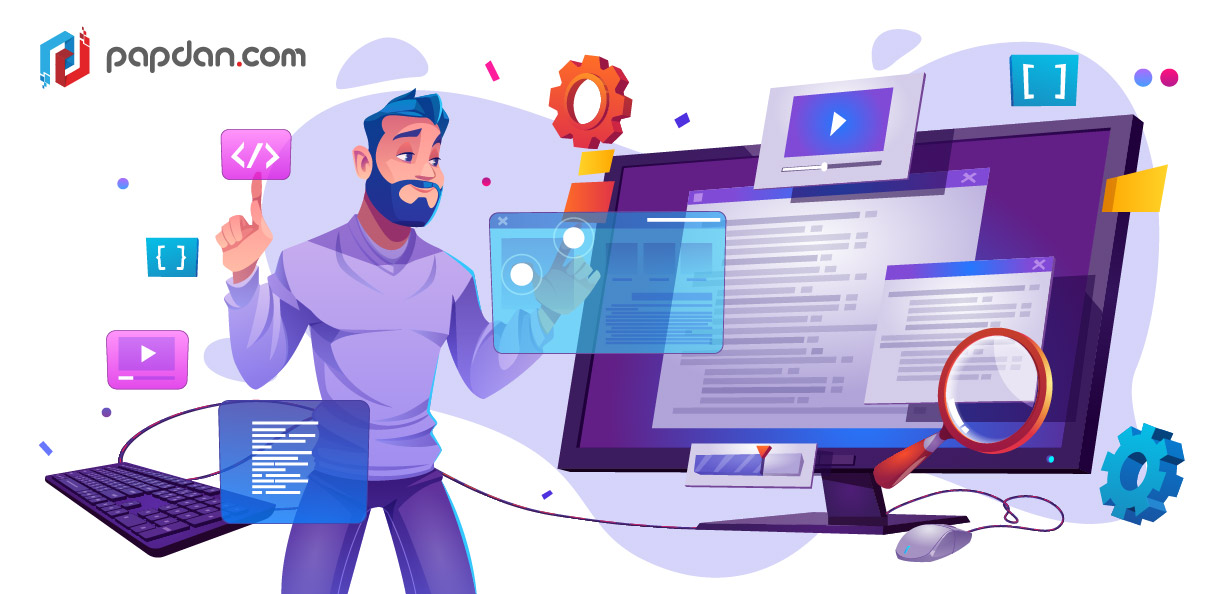Scalable systems that can be improved in response to consumer expectations have become a necessity. It is critical that we leverage intelligent technologies such as machine learning to properly solidify this transition in web development.
Let’s take a look at one practical application of machine learning to see how it relates to our daily lives. Today, e-commerce platforms recommend what to buy, on-demand entertainment platforms recommend what to watch, and food delivery services recommend the greatest meals.
This degree of personalization demonstrates how important machine learning will be in the future of web development.
Furthermore, personalisation is only one of many conceivable uses. In addition to chatbot creation and content production, machine learning contributes to web development in a variety of other ways. Machine learning will add many more items to its repertoire in the coming years.
A thorough research is required when selecting machine learning framework for web development. So much of the decision is made based on why a website wants to use machine learning, what its goals are, and what web development frameworks it will use. In this part, I’ll present the top seven machine learning frameworks that are extensively used now and will continue to be significant in the future.
TensorFlow
TensorFlow was created by the Google Brain team for internal use, however it was given to the public in 2015. It is an open-source software library that supports Python, C, C++, Java, and Go programming languages.
TensorFlow is used to create neural networking, speech/text recognition, natural language processing, and forecasting machine learning models. It’s the brains behind Google Translate, as well as Twitter, IBM, and other companies.
Tensorflow provides a flexible architecture and strong frameworks that enable complicated model construction. It has also earned a position among their favorites since it allows developers to create web apps using JavaScript.
The use of a single high-level API simplifies computation on one or more CPUs or GPUs, resulting in cleaner code that is easier to understand, develop, and debug. Overall, it introduces machine learning to the frontend, providing consumers with real-world experience via web browsers.
Apache Mahout
The Apache Software Foundation created this open-source machine learning framework to aid in the development of complicated web applications. Apache Mahout simplifies and enhances the efficiency of mathematical algorithm execution, primarily for data scientists, mathematicians, and statisticians. Mahout is a distributed linear algebra system that is known for its high performance.
Mahout is a cross-platform programming framework developed in Java and Scala. The tool is useful in the construction of recommendation-based engines, since it allows for the categorization, mining, and grouping of vast amounts of data. As a result, Mahout-based web development is frequently used to categorize groups based on purchasing behaviors, product attributes, and other comparable factors.
PyTorch
PyTorch is a machine learning framework that gained rapid acclaim after its 2016 release. PyTorch, an open-source machine learning library for Python based on Torch, was created under Facebook’s AI department (another machine learning framework). Its algorithms follow the Python control flow, making it simple to use for Python programmers.
Natural language processing is where PyTorch is most commonly employed. PyTorch is regarded as one of the top machine learning frameworks due to its fast performance, effective GPU use, and prepackaged data training models.
Microsoft Cognitive Toolkit
Cognitive Toolkit (CNTK) was released in 2016 by Microsoft Research. It’s a C++-based open-source deep learning framework with Python interface support. Predictive analysis, s peech recognition, and the study of massive unstructured datasets are all common uses for CNTK. Parallel execution and automated differentiation are among the characteristics it enables.
CNTK is expandable and functional, thus no massive, cumbersome code is required. It is popular because it supports a variety of frameworks and technologies and is simple to learn. One of the most notable characteristics of the CNTK framework is its support for Convolutional Neural Networks (CNN) and Recurrent Neural Networks (RNN).
Caffe2
Caffe2, a deep learning framework developed in C++ and Python, was published by Berkeley Vision and Learning Center in 2017. Caffe2 is a versatile and simple framework that just requires a basic understanding of C++ to get started developing.
Caffe2’s extensible code improves app speed, and support for sophisticated models guarantees that app code is simple. It supports web development using Python and Matlab bindings, as well as preset networks. No-code development may also be done with the help of pre-trained models.
The framework is frequently used in the creation of websites that need picture segmentation and categorization. CNN guarantees that the development process moves quickly and efficiently.
It really should come as no surprise that the combination of machine learning and web development will revolutionize the digital world’s future. To satisfy the future demands of customers and companies, a lot of Melbourne web development services will include machine learning algorithms into the development process. With this new technology, developers have many options, and the effects will definitely be transformational!


